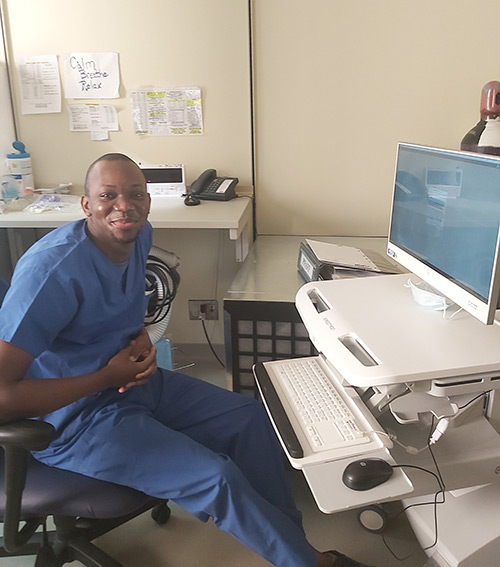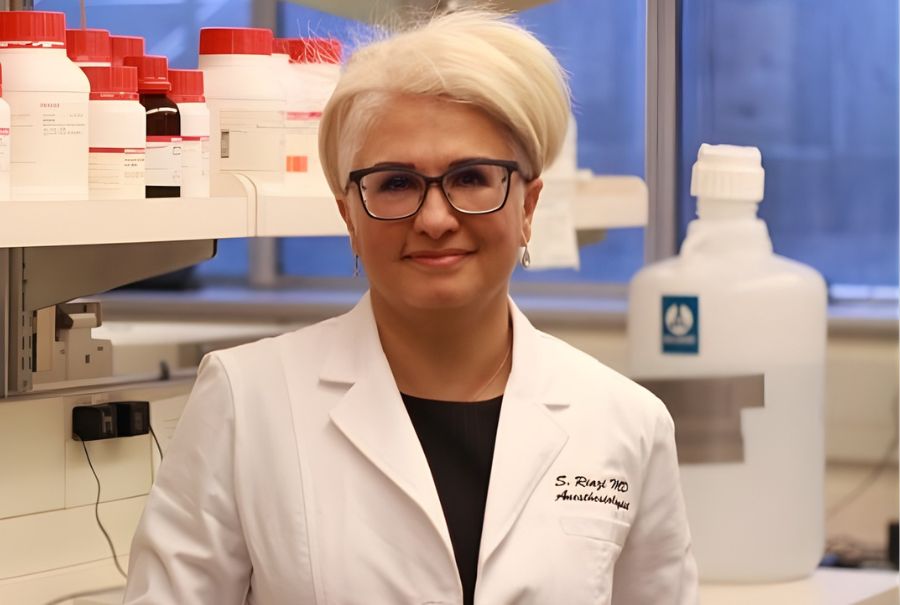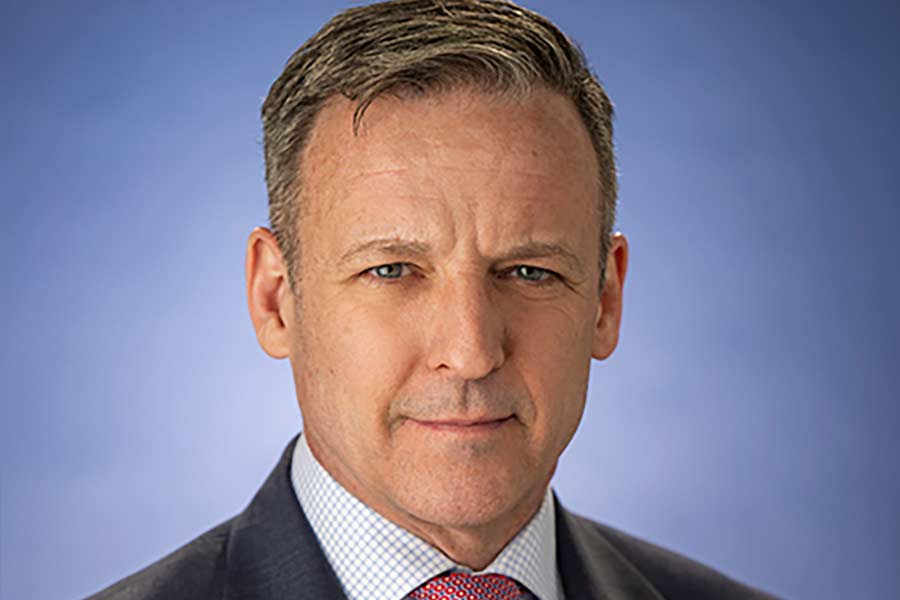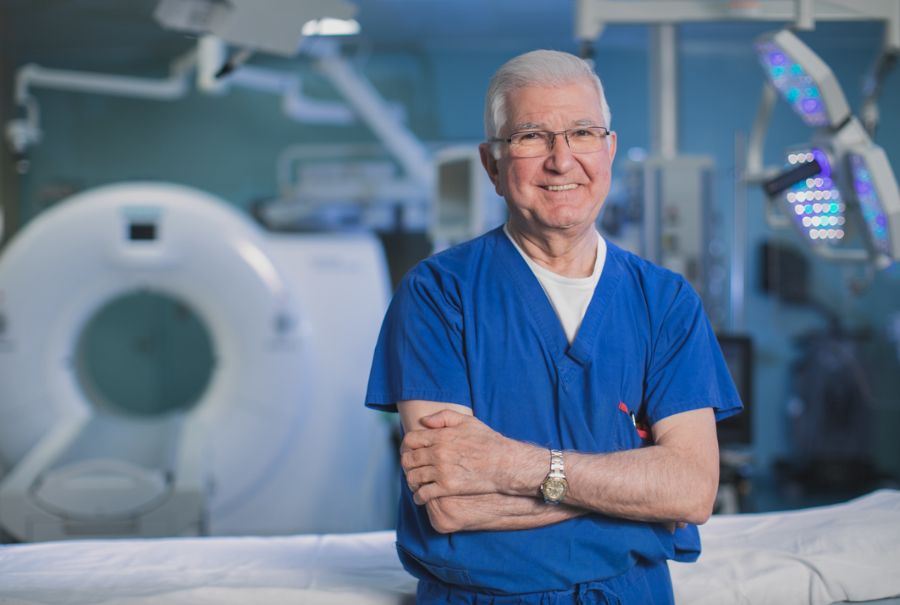Registered Respiratory Therapist (RRT) Tina Yan at Toronto General Hospital.
For more than a year now, UHN staff have been on the front lines battling COVID-19, and remain committed as ever. We spoke with two of those frontline workers to learn more about what the past year has been like for them. UHN’s Aifuwa Rhodes and Tina Yan have been fighting COVID-19 on the front lines and at home.
The beginning
Aifuwa Rhodes, critical care nurse in the Medical Surgical Intensive Care Unit (MSICU) at Toronto General Hospital, had been working at UHN since 2018. He transitioned to a new role in the MSICU in March 2020 – right when COVID-19 hit.
“You basically had to hit the ground running from day one,” he says.
Rhodes worked with his team to get up to speed quickly. Some of his co-workers had been at the hospital during the SARS crisis, but there was still a sense of uncertainty and anxiety about how to fight this new virus. Tedious but crucial safety measures became a normal part of the life as a UHN healthcare worker.
Tina Yan, a respiratory therapist at Toronto General Hospital, says that March 2020 brought a unique challenge. As PPE (personal protective equipment) practices ramped up, new policies and practices were rapidly developed and changing daily to keep everyone safe.
“Now we have to think twice, like, OK, do I have the appropriate PPE on? Are my colleagues in the room also wearing the appropriate PPE so that we’re all safe? Is the patient under proper precautions so that we can perform this safely? Those are all things that now come to mind,” says Yan.

Dealing with burnout
“The biggest challenge is not only PPE, knowing policies and procedures, but also we’re losing a lot of time. Personal time with our families, for ourselves,” says Yan, who spoke about the challenges of trying to balance mental and physical wellness over the past year.
“A lot of us are picking up over time. We’re coming in on our off days to provide the care that’s needed to our patients, to make sure that our colleagues are not burned out,” Yan says. “You also have your own personal mental health and well-being, not being able to see your family members and friends that you usually do for distressing, but you have a commitment for work. You want to be there for your patients.”
As resilient as healthcare workers are – they’re also the humans seeing the sometimes tragic outcomes of this pandemic.
“We’re trying our best with every therapy we can offer to try and save patients. But we have to remember we can’t save everyone, no matter how hard we try,” says Yan. “That’s really hard to accept because we’re in health care. We want to save lives. We want to help people. But sometimes the bottom line is, no matter how much we try, we can’t.”
Like so many of us, normal routines of seeing loved ones has also been impossible, so UHN healthcare workers like Rhodes have had to find different ways to deal with the stress. “I started doing other things for myself. I started biking a lot [and] would try my hand sometimes with cooking. I’ve been able to create some kind of diversion from the things and the cases that I see on a daily basis when I’m at work,” says Rhodes.
What keeps UHN healthcare heroes going?
Despite the challenges of the past year, Rhodes and Yan are still as committed as ever to beating the pandemic.
“The biggest reward for sure is seeing patients get better and actually leave the ICU,” says Yan.
“Yes, it is a challenging time to be a healthcare worker but the satisfaction that comes from people feeling better or getting better is something that’s also very rewarding,” Rhodes says.
What is truly inspiring to both Rhodes and Yan is the way that UHN has come together to fight the pandemic. “I’m very inspired by the resilience and the how tightly bound the respiratory therapy department is, as well as the hospital as a unit. We’re so supportive of each other, we’ll take the extra time to check in with each other,” says Yan. Rhodes noted that many retired staff from the MSICU came back at the onset of the pandemic to help.
This camaraderie is a testament to just how strong people can be during difficult times – something that isn’t exclusive to healthcare workers.
“Everyone can help us by doing each of their parts, doing our own part by staying home, not going out and travelling and interacting, keeping a safe distance, getting the vaccine when it becomes available, and doing proper hand hygiene,” says Yan. “It’s so inspiring to see how everyone’s coming together to help each other out during this very difficult time.”


